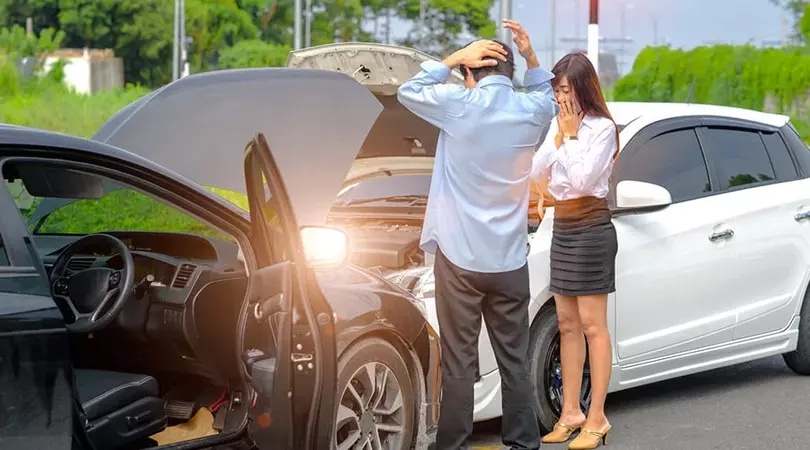Defective parts in a car can cause serious damages.
These defects might result from manufacturing flaws, design errors, or inadequate quality control. The consequences of such defects can range from minor inconveniences to severe property damage. Here are some types of property damage that can occur due to defective parts in a car wreck:
Vehicle Damage: Defective parts can directly contribute to damage to the vehicle itself. For instance, faulty brakes, steering systems, or suspension components could cause a driver to lose control of the vehicle, leading to collisions with other objects, vehicles, or barriers. The impact might cause significant damage to the car’s body, frame, and other structural elements.
Collision Impact: Defective parts that result in the loss of vehicle control can lead to high-speed collisions, which often result in extensive damage. This includes damage to the front, sides, rear, or even the entire vehicle, depending on the angle and force of impact.
Airbag and Restraint System Failure: Defective airbags or restraint systems (such as seat belts) can fail to deploy or function as intended during a collision. This can lead to increased injuries for occupants who might collide with the interior components of the car or be ejected from the vehicle.
Fuel System Compromises: Defective fuel systems can result in fuel leaks or fires after a collision. If the fuel tank is compromised, it can lead to fuel spillage and the potential for a fire to break out, causing further property damage to the vehicle and its surroundings.
Electrical System Failures: Faulty electrical components, such as malfunctioning sensors, can affect crucial systems like the anti-lock braking system (ABS), electronic stability control (ESC), and engine management systems. These failures can contribute to loss of control, affecting the severity of a collision.
Tire Blowouts: Defective tires, whether due to poor manufacturing or design flaws, can result in blowouts while the vehicle is in motion. A blowout can lead to loss of control, causing the vehicle to collide with other objects, vehicles, or barriers.
Transmission or Gearbox Malfunctions: Defective transmissions or gearboxes might lead to sudden gear changes or total transmission failures while driving. This could cause sudden deceleration or loss of power, potentially resulting in collisions with other vehicles or obstacles.
Frame and Suspension Damage: Defective suspension components or weakened frames might not withstand the impact of a collision, causing the vehicle’s structure to crumple or collapse. This can lead to extensive and costly repairs.
Door and Window Failures: Defective door latches or windows might not remain securely closed during a collision, potentially leading to ejection of occupants or further damage to the interior and exterior of the vehicle.
Functional System Failures: Various functional systems, such as the heating, cooling, or lighting systems, can be compromised due to defective parts, affecting the vehicle’s usability and safety.
Has your car been recalled?
It’s worth noting that these types of property damage can also have significant safety implications, leading to injuries or even fatalities in severe cases. This is why regular vehicle maintenance, recalls, and addressing any potential issues promptly are essential for preventing accidents and property damage resulting from defective parts.



